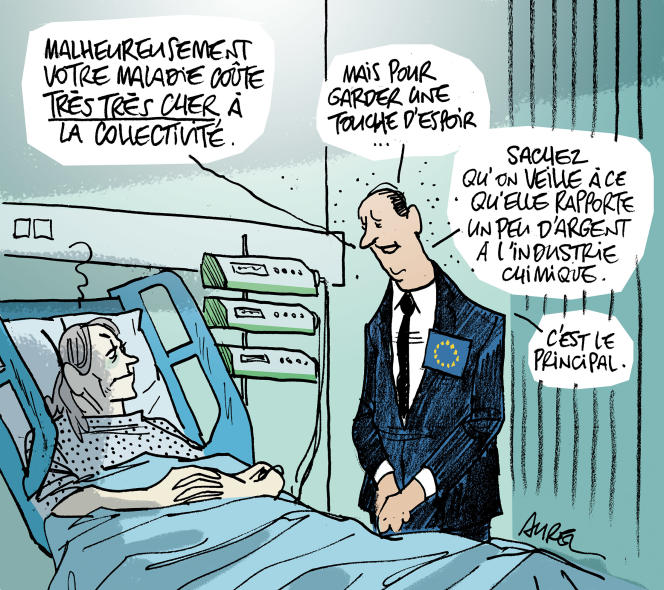The estimate is all the more striking in that it does not come from civil society, but from the services of the European Commission itself: the withdrawal from the market of the most problematic chemical substances would represent a considerable health benefit, estimated at between 11 billion and 31 billion euros per year in the countries of the European Union (EU). As for manufacturers, the estimated annual cost of such a measure, averaged over the next three decades, would be around ten times lower – between 0.9 billion and 2.7 billion euros per year.
These elements of the impact study carried out by the European executive, with a view to an overhaul of the Community regulations on chemicals, were until now confidential. The European Environmental Bureau (EEB) – a network of environmental organizations based in Brussels – obtained leaks from it, which it shared with several European press titles, including The world. When contacted, the European Commission indicated that it did not comment on the leaks but that its “determination to work towards a toxic-free environment remains unchanged”.
Not formally published, the impact study had been obtained in the spring by another NGO, Corporate Europe Observatory (CEO), through a request for access made under the European law on the transparency of administrative documents. . But before being transmitted to CEO, it had been purged of the passages quantifying the costs and the benefits expected from a stricter regulation of chemical substances. “Direct health benefits for consumers and workers, such as better fertility, a lower incidence of obesity, asthma, neurological diseases and cancer are expected from the reduction in exposure to most dangerous chemicals »we read in the passages of the impact study which had not until now been made public.
“Pressure from the German chemical industry”
In a communicated published on Tuesday 11 July, the EEB regrets that the initial ambitions of the Commission, set out in October 2020, have been revised downwards as suggested by the impact study. Indeed, all consumer products would not be affected by the removal of problematic substances, only a fraction of the industrial sectors would be affected at the end of the regulatory overhaul. If, however, it actually sees the light of day. “The review was promised for the end of 2022, but the European commissioners decided to postpone it after pressure from the German chemical industry”specifies the EEB.
You have 59.86% of this article left to read. The following is for subscribers only.
